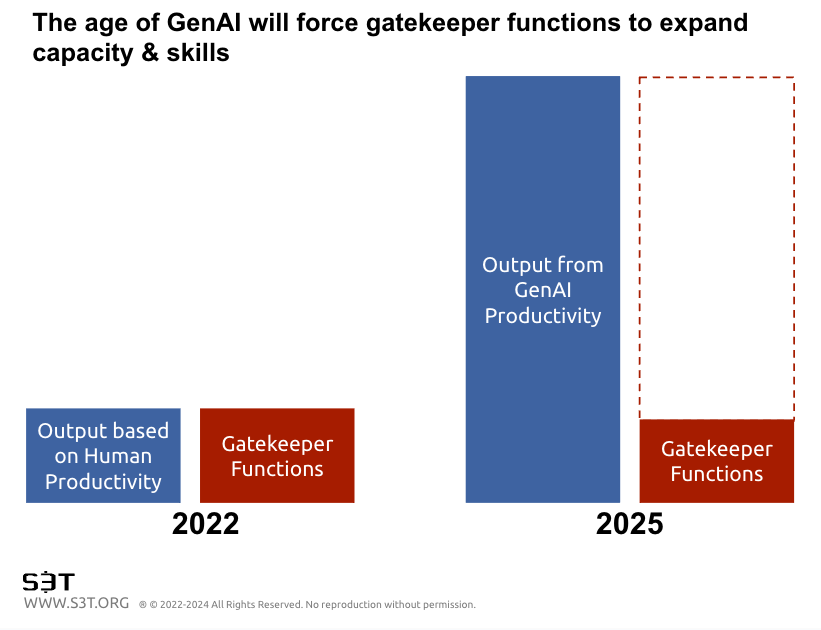S3T Playbook: Shift to effective gatekeeping in the age of generative AI

- AI:The Great Flood 2.0, December 2022.
The world supervisory workloads are about to explode and our staffing models are not ready.
The S3T edition for December 11, 2022 noted that the rise of GenAI would usher in a flood of productivity. We're now living in that reality. Between now and 2025 proactive companies and talent recruiters have the opportunity to facilitate a major if not once-in-a-lifetime shift in the composition of the workforce.
Background
There is a broad category of work today that exists across multiple industries and disciplines that we could categorize under the heading "gatekeepers" or "approvers."
Together these roles are responsible for a supervisory workload: reviewing, testing, scrutinizing, inspecting work products, documents, and deliverables before allowing them to progress to the next step, or be used in real world situations. Making sure that things work the way the should and comply with best practices or laws.
These roles have job titles that contain terms like "Quality Control", "Editor", "Compliance", "Security", "Testing", "Auditor" or "Governance." They include jobs that are responsible to check words, documents, media, code, processes and usability.
The work of these roles can range from product review to code review, document review and more. What gets reviewed could be AI models that require approval from an ethical or clinical governance team before they’re used in production. It could be documents or presentations that need to be approved before they are accepted or presented.

Current supervisory/gatekeeping capacity is sized for the productivity of the old world, not the new
These gatekeeper and approval roles carry a supervisory workload that has been matched over time to the expected output of the human workers producing things that require review or approval. The current staffing for these roles is sized to match expected outputs from human teams - not GenAI.
Current staffing for these gatekeeper roles is generally believed to be barely adequate for current levels of output, and organizations frequently complain that gatekeeper roles cause bottlenecking and delays to key initiatives.
This situation is about to get a lot worse. Going forward, gatekeeper roles will have:
- more to review - much more,
- less time to review it in,
- more complex criteria to review against.
Organizational leaders and talent recruiters must navigate an unusual shift in the composition of the workforce, by focusing relentlessly on 4 key priorities. We'll cover those further below, but first some context on why these priorities will make such a crucial difference in outcomes for proactive leaders.
